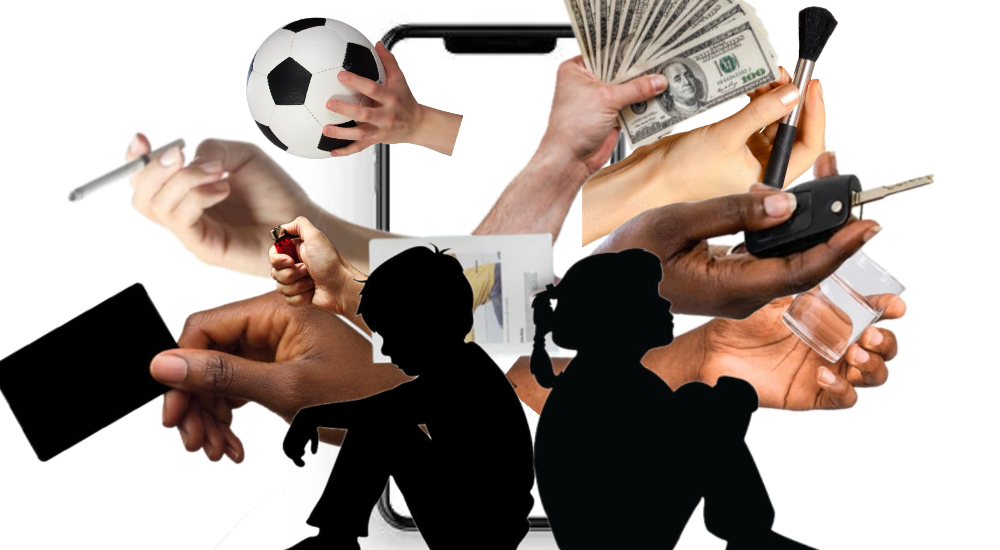Every generation of girls has their own insecurities that companies profit off of. For those in the 90s and 2000s, there was an especially large market for weight loss methods. Pre-teens and teens alike would see the models in magazines wearing their low-waisted jeans right next to a number to call to order weight-loss pills. Now, with the popularity of TikTok, young girls have a new ‘magazine’ catered directly to them; however, with the new algorithms which personalize what you see, this can be dangerous. Despite this, I’m not saying TikTok is inherently bad. Like almost every teenager, I love the app. However, it becomes bad when a few things happen. Most obviously, when someone who is too young is allowed free range on the app.
When I was a pre-teen, me and my peers had what I could call the perfect teen girl vloggers. Think Bethany Mota, Brooklyn and Bailey, and MyLifeAsEva. These were the people we idolized and aspired to be like. I would copy their outfits and desperately yearn for the same backpack, fuzzy socks, and candles that they all received and would later show off in their Christmas hauls. I dreamed of having my own car and license like them, so on the weekend, I would also take trips to American Eagle and Bath and Bodyworks. When I was 9 and 10, the clothes from those stores were not age appropriate for me. While deep down I knew this, I didn’t care. Although my older cousins thought I was growing up too fast, looking back now, I’m glad those vloggers were my role models. They would post their after school routines, and I then found myself fantasizing about doing homework for high school classes. So, how can we criticize these young girls now who are simply trying to mirror what they see from their role models, if we all did the exact same thing?
One quick search for anything similar to “are kids maturing faster?” reveals many articles relating to this subject from sources such as The BBC and The Guardian. The article by the BBC titled “Kids getting older younger: are kids maturing too fast?” reflects the pattern of young kids seeming older and highlights something I hadn’t thought of: the business side of this phenomenon. Marketing, since the ‘90s, has changed to cater more towards younger audiences. Companies realized that teens and pre-teens were becoming more involved in pop-culture and consumerism, and targeting this audience could have a positive result for their sales. This adds another more disturbing layer of monetizing insecurities to this situation. By being exposed to more on social media, companies can profit off of insecurities girls had never even thought of having before seeing a product that could ‘fix’ it.
However, The Guardian’s article: “Early puberty: Why are kids growing up faster?” takes a more scientific and statistical approach. The article highlights an American study of 4,000 children that showed how societal and familial circumstances are physically starting puberty faster for children. One conclusion of this study was that race is a defining factor of early maturation/puberty. Because of systemic issues, African-American families are more likely to be poor and as the article puts it, “socially-deprived.” This makes it so young children are forced to grow up faster, to become little adults to support the people in their family who need it.
The problem to me, and many others, is with the children who act like entitled adults. Thinking back to my years in elementary school and at summer camp, there were always girls and boys who acted entitled and as if they should get exactly what they wanted. These kids are very different from the ones who might have matured early for familial reasons, and are probably the kids you think about when “10 years olds in Sephora” is brought up. While the anger felt towards these privileged pre-teens that are taking all the stock of a product made for people double and triple their age is understandable, it isn’t reasonable to bully and blame these children. Behind every child is a parent and that fact should not be forgotten. Parents might never be around or preoccupied with other issues, leaving their kid to become the parent. Or conversely, there are some parents who might refuse to leave their child’s side, causing resentment and a desperate want for freedom. From what we’ve all learned from our time as young people, it’s hard, and it’s unfair to criticize someone whose brain is years away from being where it needs to be to make stable decisions.


